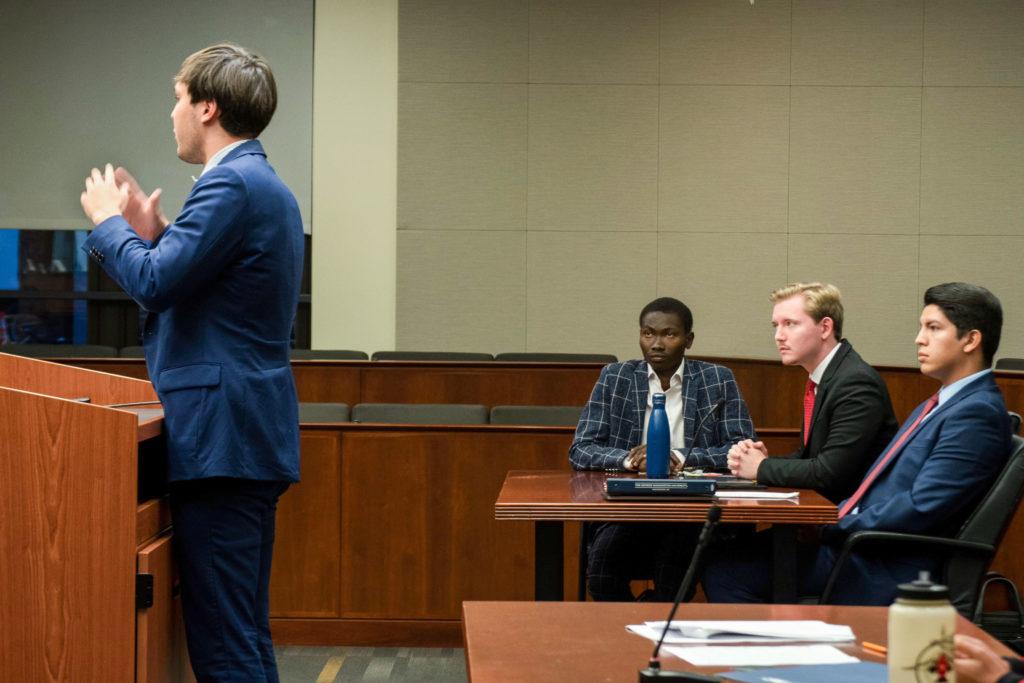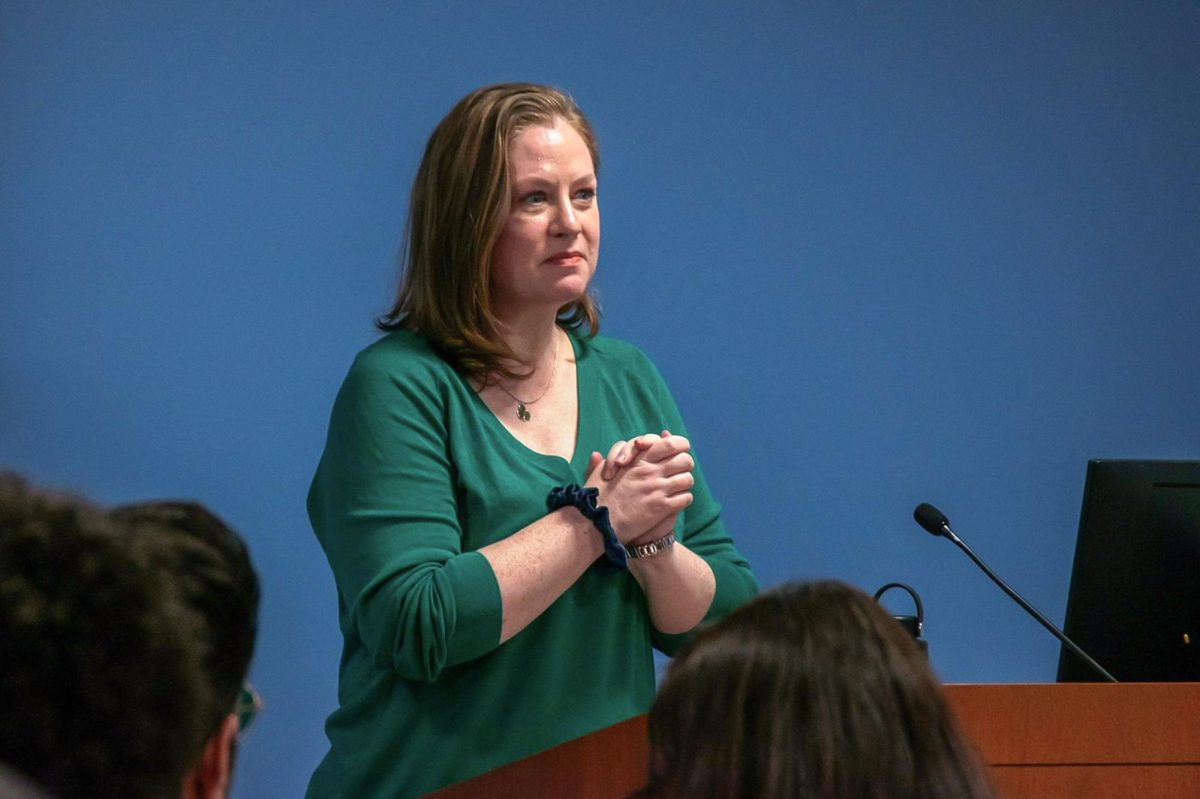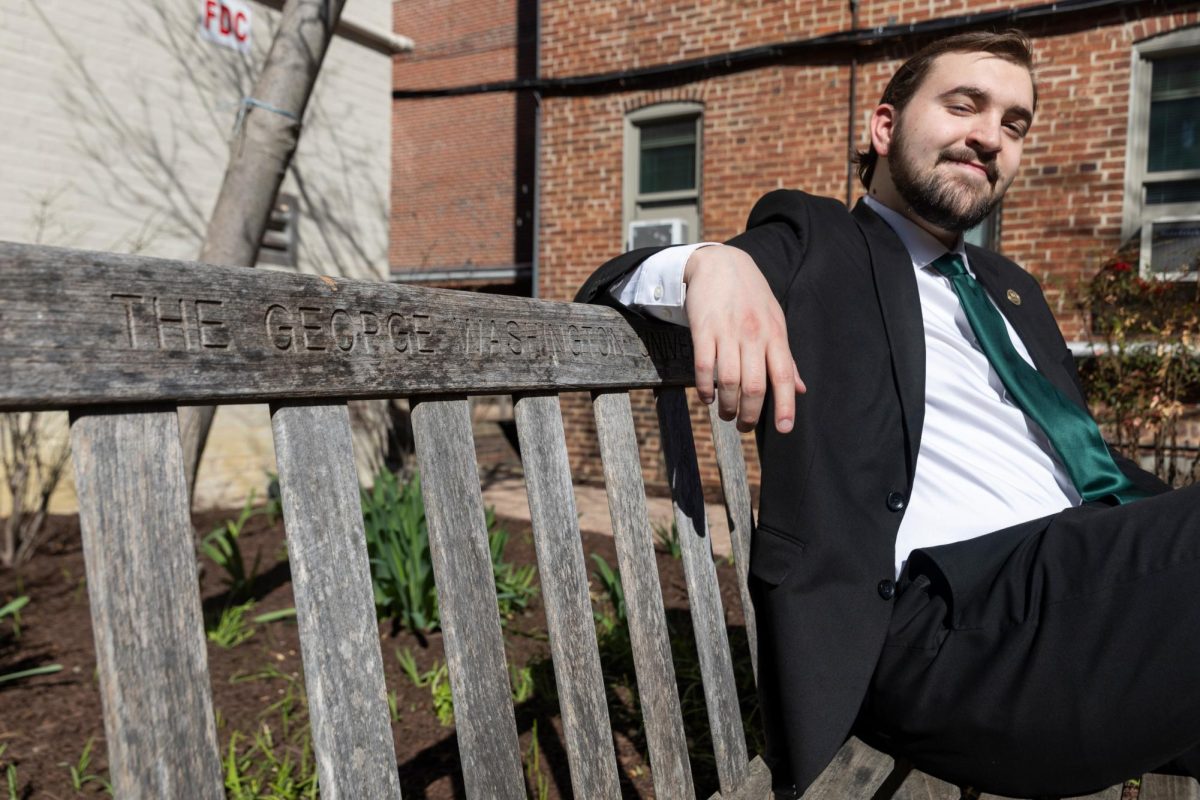The Student Court will issue a final judgment next month after hearing arguments on whether the cabinet’s vote in July to remove Student Association President Christian Zidouemba was valid under the SA constitution Friday.
The court will issue its final ruling in a public meeting on Oct. 9 on whether Zidouemba’s July removal was constitutionally valid, which could determine whether his subsequent termination of Executive Chief of Staff Cordelia Scales was legitimate. The plaintiff asked the court to use its powers to remove Zidouemba per the July vote, while the defense argued that because the president had appointed two chiefs of staff at the time of the vote, it required both of their votes to successfully remove him.
Dylan Basescu, the plaintiff representing Scales, argued that the purpose of article 15 of the SA constitution is similar to the 25th Amendment in the U.S. Constitution in that it allows for the president to be removed in “an emergency situation.”
“The reason for that is because this is a situation which is urgent, necessarily,” he said.
Basescu argues in a brief submitted to the court that the cabinet removed Zidouemba from office immediately after voting, so between the time when the cabinet voted and when SA Vice President Yan Xu submitted a notice of the vote to the court, no one held the office of the SA President. He argues that Zidouemba’s letter firing Scales was therefore an overstep of his ability at the time and did not hold weight.
Article 15 of the SA constitution states that the chief of staff, communications director, vice president, treasurer and legislator general have to be present and unanimously vote in favor of removing the SA president for the vote to be valid.
Basescu argued that the SA constitution requires only one individual to represent each of the titles listed in article 15, and argued that either Executive Chiefs of Staff Scales or Keanu Rowe could act to remove Zidouemba in their role as “the” chief of staff.
“The president can have multiple people with the title ‘the chief of staff,’” he said. “But no matter how many of those individuals there are, it takes but one to participate effectively in article 15, section 3a proceedings.”
Basescu said if all chiefs of staff were required to vote on removal proceedings, a president could strategically appoint someone to the position for the explicit purpose of preventing a unanimous cabinet vote.
Basescu asked in the briefs submitted that the court declare that Zidouemba is not the legitimate president of the SA and that Scales is “presently retained” as executive chief of staff.
Senate Chief Counsel Juan Carlos Mora, the defense representing Zidouemba, argued that because the president had appointed two chiefs of staff, it required both of their votes to successfully remove him. Mora argued that because Rowe was not present for the removal vote, he did not consent to the removal process, which nullifies it.
Mora said because the SA constitution only allows the president to nominate one chief of staff, the SA Senate improperly confirmed two people to the same position.
“By definition, the vote on July 1st could not have been unanimous, because the senate considered, voted on and confirmed two individuals, and Mr. Rowe was one such concerned individual for the article 15 vote,” Mora said.
The last SA president, Brandon Hill, appointed two chiefs of staff, assigning one to assist the president and one to manage the SA’s executive and legislative branches.
Mora said according to the constitution, the cabinet could only vote on whether the president was incapacitated, not on whether to remove the president. Mora said beyond that, the cabinet only has the power to temporarily, not permanently, remove the president from office.
The SA constitution states that the cabinet can vote on whether the president is temporarily or permanently unable to execute their powers and responsibilities. If the cabinet votes that the president is incapacitated and sends a letter with that information to the chairperson pro tempore and the student court chief justice, the vice president then takes power, the SA constitution states.
Mora argued that the word “whether” in the constitutional clause means the cabinet is voting on the president’s capacity, not on removal.
“The purpose of this mechanism is not to check the president,” he said. “It’s to ensure that the government is running when no one’s at home.”











